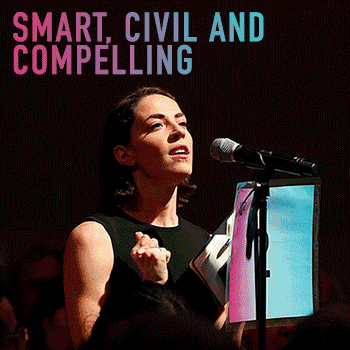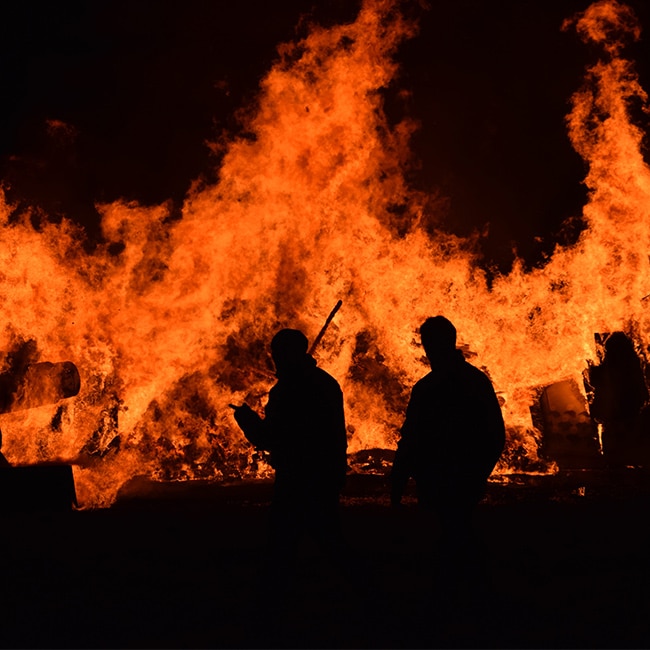Extending the education pathway

Extending the education pathway
Opinion + AnalysisBusiness + LeadershipRelationshipsSociety + Culture
BY The Ethics Centre 16 JAN 2020
In the course of 2019, The Ethics Centre reviewed and adopted a new strategy for the five years to 2024.
The key insight to emerge from the strategic planning process was that the Centre should focus on growing its impact through innovation, partnerships, platforms and pathways.
We focus here on just one of those factors – ‘pathways’ and, in particular, the education pathway.
The Ethics Centre is not new to the education game. To this day, the establishment of Primary Ethics – which teaches tens of thousands of primary students every week in NSW – is one of our most significant achievements.
As Primary Ethics continues to break new ground, we feel it’s time to bring our collective skills to bear along the broader education pathway.
With this in mind, we’re delighted to report that The Ethics Centre and NSW Department of Education and Training have signed a partnership to develop curriculum resources and materials to support the teaching and learning of ethical deliberation skills in NSW schools, including within existing key learning areas.
This exciting project will see us working with and through the Department’s Catalyst Innovation Lab alongside gifted teachers and curriculum experts – rather than merely seeking to influence from the outside.
In addition, we have also formed a further partnership with one of the Centre’s Ethics Alliance members, Knox Grammar School. This will involve the establishment of an ‘Ethicist-in-residence’ at the school, the application of new approaches to exploring ethical challenges faced by young adults, and the development of a pilot program where students in their final years of secondary education undertake an ethics fellowship at the Centre.
In due course, we hope that the work pioneered in these two partnerships and others will produce scalable platforms that can be extended across Australia. Detailed plans come next, and we believe the potential for impact along this pathway is significant.
We believe ethics education is a central component of lifelong learning – extending from the earliest days of schooling through secondary schooling, higher education and into the workplace.
The broadening of the education pathway therefore provides new opportunities for The Ethics Centre and Primary Ethics to work together – sharing our complementary skills and experience in service of our shared objectives, for the common good.
If you have an interest in supporting this work, at any point along the pathway, then please contact Dr Simon Longstaff at The Ethics Centre, or Evan Hannah, who leads the team at Primary Ethics.
Dr Simon Longstaff is Executive Director of The Ethics Centre: www.ethics.org.au
Evan Hannah can be contacted via Primary Ethics at: www.primaryethics.com.au
Ethics in your inbox.
Get the latest inspiration, intelligence, events & more.
By signing up you agree to our privacy policy
You might be interested in…
Opinion + Analysis
Society + Culture
Sex ed: 12 books, shows and podcasts to strengthen your sexual ethics
Opinion + Analysis
Relationships, Science + Technology
Making friends with machines
Explainer
Relationships
Ethics Explainer: The Other
Explainer
Politics + Human Rights, Relationships
Ethics Explainer: Autonomy
BY The Ethics Centre
The Ethics Centre is a not-for-profit organisation developing innovative programs, services and experiences, designed to bring ethics to the centre of professional and personal life.
A burning question about the bushfires

A burning question about the bushfires
Opinion + AnalysisClimate + EnvironmentPolitics + Human RightsRelationships
BY Simon Longstaff The Ethics Centre 16 JAN 2020
At the height of the calamity that has been the current bushfire season, people demanded to know why large parts of our country were being ravaged by fires of a scale and intensity seldom seen.
In answer, blame has been sheeted home to the mounting effects of climate change, to failures in land management, to our burgeoning population, to the location of our houses, to the pernicious deeds of arsonists…
However, one thing has not made the list, ethical failure.
I suspect that few people have recognised the fires as examples of ethical failure. Yet, that is what they are. The flames were fuelled not just by high temperatures, too little rain and an overabundance of tinder-dry scrub. They were also the product of unthinking custom and practice and the mutation of core values and principles into their ‘shadow forms’.
Bushfires are natural phenomena. However, their scale and frequency are shaped by human decisions. We know this to be true through the evidence of how Indigenous Australians make different decisions – and in doing so – produce different effects.
Our First Nations people know how to control fire and through its careful application help the country to thrive. They have demonstrated (if only we had paid attention) that there was nothing inevitable about the destruction unleashed over the course of this summer. It was always open to us to make different choices which, in turn, would have led to different outcomes.
This is where ethics comes in. It is the branch of philosophy that deals with the character and quality of our decisions; decisions that shape the world. Indeed, constrained only by the laws of nature, the most powerful force on this planet is human choice. It is the task of ethics to help people make better choices by challenging norms that tend to be accepted without question.
This process asks people to go back to basics – to assess the facts of the matter, to challenge assumptions, to make conscious decisions that are informed by core values and principles. Above all, ethics requires people to accept responsibility for their decisions and all that follows.
This catastrophe was not inevitable. It is a product of our choices.
For example, governments of all persuasions are happy to tell us that they have no greater obligation than to keep us safe. It is inconceivable that our politicians would ignore intelligence suggesting that a terrorist attack might be imminent. They would not wait until there was unanimity in the room. Instead, our governments would accept the consensus view of those presenting the intelligence and take preventative action.
So, why have our political leaders ignored the warnings of fire chiefs, defence analysts and climate scientists? Why have they exposed the community to avoidable risks of bushfires? Why have they played Russian Roulette with our future?
It can only be that some part of society’s ‘ethical infrastructure’ is broken.
In the case of the fires, we could have made better decisions. Better decisions – not least in relation to the challenges of global emissions, climate change, how and where we build our homes, etc. – will make a better world in which foreseeable suffering and destruction is avoided. That is one of the gifts of ethics.
Understood in this light, there is nothing intangible about ethics. It permeates our daily lives. It is expressed in phenomena that we can sense and feel.
So, if anyone is looking for a physical manifestation of ethical failure – breathe the smoke-filled air, see the blood-red sky, feel the slap from a wall of heat, hear the roar of the firestorm.
The fires will subside. The rains will come. The seasons will turn. However, we will still be left to decide for the future. Will our leaders have the moral courage to put the public interest before their political fortunes? Will we make the ethical choice and decide for a better world?
It is our task, at The Ethics Centre, to help society do just that.
Ethics in your inbox.
Get the latest inspiration, intelligence, events & more.
By signing up you agree to our privacy policy
You might be interested in…
Opinion + Analysis
Politics + Human Rights, Relationships
Want #MeToo to serve justice? Use it responsibly.
Opinion + Analysis
Business + Leadership, Politics + Human Rights
A foot in the door: The ethics of internships
Opinion + Analysis
Relationships, Science + Technology
To fix the problem of deepfakes we must treat the cause, not the symptoms
Explainer
Politics + Human Rights











